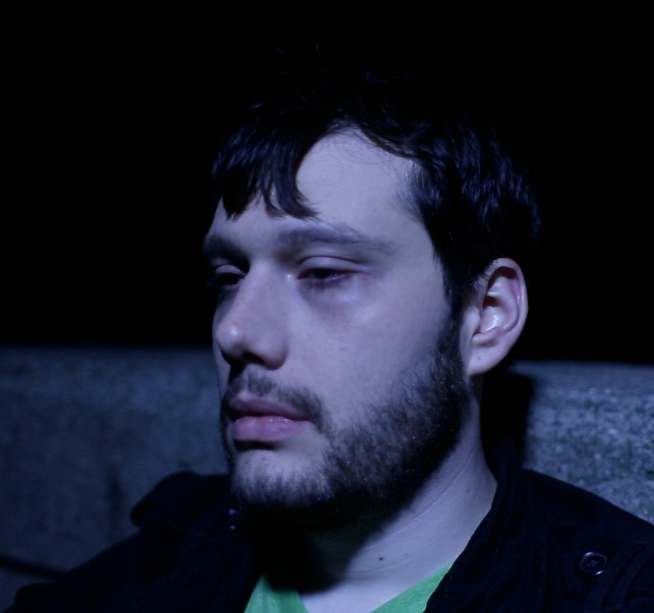“Go to hell, you damn moon.” This has to be my favorite piece of dialogue in this film, “The Long Awake,” which is a short directed and produced by Boston-area filmmaker Evin Charles Anderson. “The Long Awake” is just that – a story of a man, who we discover, is in the seemingly tail end of a 59-day stretch of being the only man in Boston (or possibly the Earth?) who is still awake as others sleep during an endless night. A departure from Anderson’s pervious screenwriting effort “Paperthin,” also released this year, “The Long Awake” offers food for thought as we follow its lone protagonist throughout.
While “Paperthin” was directed by a man named Trent England, Anderson here takes the helm, and it shows with the film’s opening, which is engaging and captivating. The film opens to the blackness of night, scored by low droning bass and techno, which sets the film starkly apart from “Paperthin” which opened with an interior monologue. A couple of streetlights flickering show us the once busy streets of Boston filled with parked cars, but devoid of people. “It’s night…it’s been night for a very long time,” a voice narrates; and both the music and the cinematography help us to believe that.
One of the struggles of the movie is that its’ lack of exposition becomes evident early on, as its lone narrator wanders through pitch darkness after pitch darkness attempting to find one other awake person. The film also fixates on a lone shack, a placard reading ‘Employees Only,’ which this stranger, dubbed only ‘The Wanderer,’ arrives at time after time. He muses. Why is it always night? Why does this walking stick, which I constantly throw into the darkness, reappear each night? Certainly, ‘The Wanderer’ looks haggard; but I questioned the need to devote time to this cabin, or the reappearing stick with such intensity.

There are several homages contained within this film, and you can tell Anderson and Writer Stephen Walsh’s clear inspiration from films that came before. “The Long Awake’s” eerie shot of empty Rowe’s Warf practically exudes Cameron Crowe’s fantastic shot of an empty Times Square in the intriguing “Vanilla Sky,” as well as one-sided dialogue ‘The Wanderer’ has with motionless people reminiscent of the wonderful “I Am Legend.” Watching both of Anderson’s films, it’s also clear of his devotion to record-keeping, as ‘The Wanderer’ here chronicles his experiences in a journal, much like actor Elsa McLaughlin’s character ‘Susana’ from “Paperthin.” Additionally, Anderson and Director of Photography Tatiana Ivan show ‘The Wanderer’s diminishing health and alertness with little to work with in the way of special effects. One fantastic shot shows ‘The Wanderer’s heavy eyelids cast in the light of the moon, which soon becomes the protagonist’s enemy. The film’s ending, while offering a scene of wonderful emoting from Anderson as well as a cliffhanger (not to be spoiled here), does a fair job of helping you to understand its protagonist’s clearly desperate frame of mind.
– by Mark Ziobro

